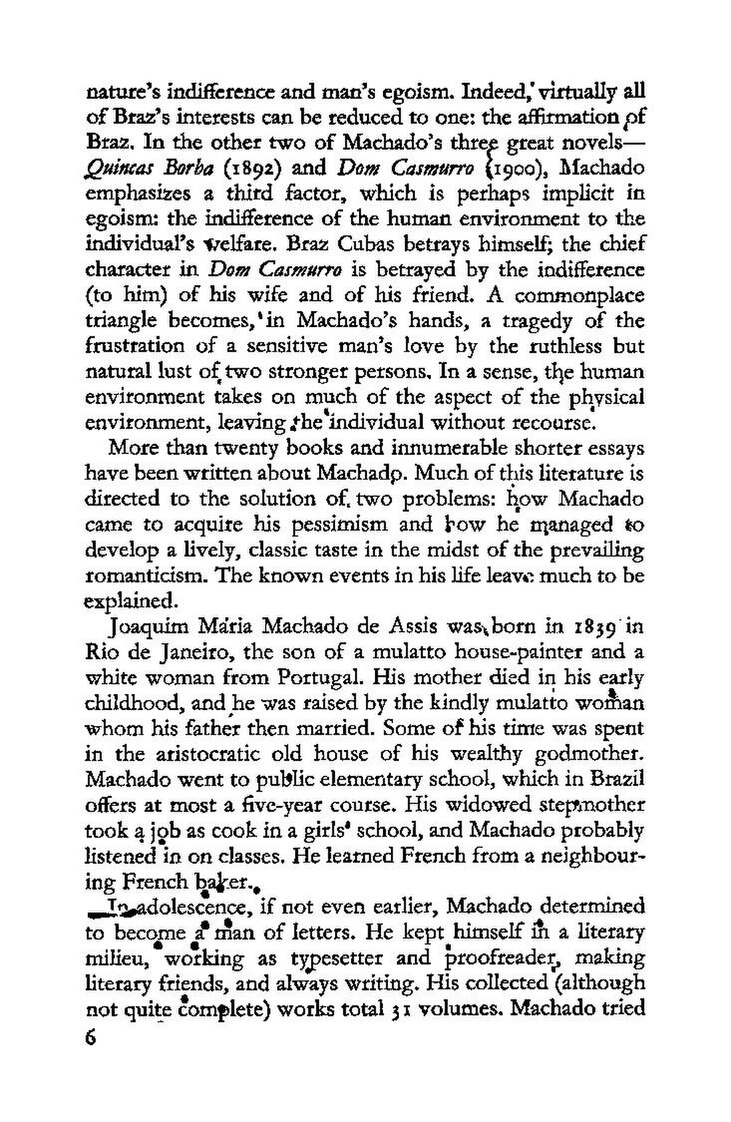nature’s indifference and man’s egoism. Indeed, virtually all of Braz’s interests can be reduced to one: the affirmation pf Braz. In the other two of Machado’s three great novels{[--}}Quincas Borba (1892) and Dom Casmurro (1900), Machado emphasizes a third factor, which is perhaps implicit in egoism: the indifference of the human environment to the individual’s welfare. Braz Cubas betrays himself; the chief character in Dom Casmurro is betrayed by the indifference (to him) of his wife and of his friend. A commonplace triangle becomes, in Machado’s hands, a tragedy of the frustration of a sensitive man’s love by the ruthless but natural lust of two stronger persons, In a sense, the human environment takes on much of the aspect of the physical environment, leaving the individual without recourse.
More than twenty books and innumerable shorter essays have been written about Machado. Much of this literature is directed to the solution of two problems: how Machado came to acquire his pessimism and how he managed to develop a lively, classic taste in the midst of the prevailing romanticism. The known events in his life leave much to be explained.
Joaquim Maria Machado de Assis was born in 1839 in Rio de Janeiro, the son of a mulatto house-painter and a white woman from Portugal. His mother died in his early childhood, and he was raised by the kindly mulatto woman whom his father then married. Some of his time was spent in the aristocratic old house of his wealthy godmother. Machado went to public elementary school, which in Brazil offers at most a five-year course. His widowed stepmother took a job as cook in a girls' school, and Machado probably listened in on classes. He learned French from a neighbouring French baker.
In adolescence, if not even earlier, Machado determined to become a man of letters. He kept himself in a literary milieu, working as typesetter and proofreader, making literary friends, and always writing. His collected (although not quite Complete) works total 31 volumes. Machado tried
